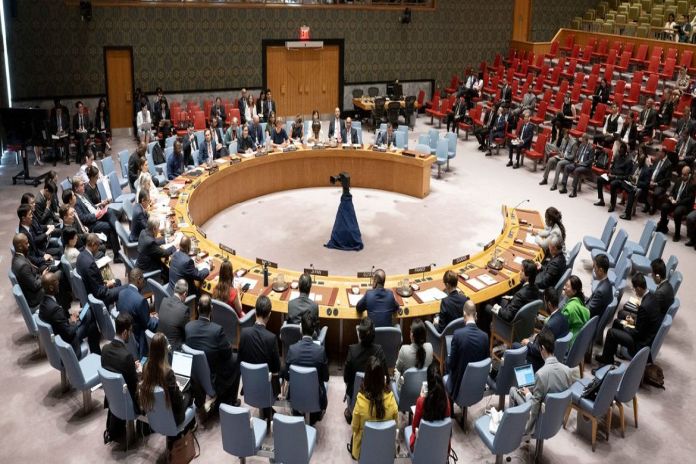NEW YORK, USA – At a Security Council high-level debate on evolving threats in cyberspace, convened by the Republic of Korea, council president for June, Guterres underscored the transformative power of digital technologies.
“Breakthroughs in digital technologies are happening at warp speed; digital advances are revolutionising economies and societies,” he said. “They are bringing people together, providing citizens with access to government services and institutions and supercharging economies, trade and financial inclusion.”
However, he cautioned that the seamless and instant connectivity that fuels these benefits also makes people, institutions and countries vulnerable.
“The perils of weaponising digital technologies are growing by the year,” he warned. “Malicious activity in cyberspace is on the rise by both state and non-state actors and by outright criminals.”
Cyber mercenaries, hacktivists
The UN chief warned that malicious cyber activities are on the rise, with serious cybersecurity incidents becoming “disturbingly common”.
Essential public services such as healthcare, banking and telecommunications are frequently breached, and criminal organizations and “cyber mercenaries” engage in relentless illicit activities.
Additionally, a “legion of hate merchants” is spreading fear and division online.
“So called civilian ‘hacktivists’ are entering the fray, and in many cases are blurring the line between combatants and civilians,” he said.

New vulnerabilities
The integration of digital tools with weapon systems, including autonomous systems, presents new vulnerabilities, Guterres said.
The misuse of digital technology is becoming more sophisticated and stealthier, with proliferation of malware software. The threat is further amplified by artificial intelligence (AI)-enabled cyber operations.
“Ransomware is one grievous example,” the UN chief underscored, “a huge threat to public and private institutions and the critical infrastructure people depend on.”
In 2023, total ransomware payments reached $1.1 billion.
Beyond financial costs, malicious cyber activities undermine public institutions, electoral processes and online integrity, eroding trust, fuelling tensions and sowing the seeds of violence and conflict, he added.
Incredible opportunity
Despite the threats, Guterres emphasised the “incredible opportunity” digital technology offers to create a more just, equal, sustainable and peaceful future. He called for breakthroughs to be oriented toward the common good, highlighting his proposed New Agenda for Peace that places prevention at the core of all peace efforts.
“It calls for developing strong frameworks in line with international law, human rights and the UN Charter and focused efforts by all States to prevent the extension and escalation of conflicts within and through cyberspace,” he said. “As reflected in the New Vision for the Rule of Law, the rule of law must exist in the digital sphere as it does in the physical world.”
Call for better integration
Secretary-General Guterres welcomed the General Assembly’s commitment to action, including its dedicated working group on information and communication technologies (ICT) security.
He also urged the Security Council to integrate cyber-related considerations into its workstreams and resolutions, underscoring that many issues it addresses, such as the protection of civilians, peace operations, counterterrorism and humanitarian operations, are affected by cyberspace.
“Integrating this issue into your deliberations would be a useful way to lay the groundwork for more effective responses to this important question,” he said.
Summit of the Future
In conclusion, Guterres stressed the importance of the upcoming Summit of the Future, in September.
“The pact that will emerge from the summit represents a pivotal chance to support the maintenance of international peace and security in cyberspace,” he said.
Among other actions, it aims to safeguard critical infrastructure against harmful ICT practices and create enhanced accountability for data-driven technology, including AI.
“I look forward to working with this Council, the General Assembly and all Member States to ensure that technology is focused where it belongs: on the progress and security of all people and the planet we share,” the secretary-general concluded.





